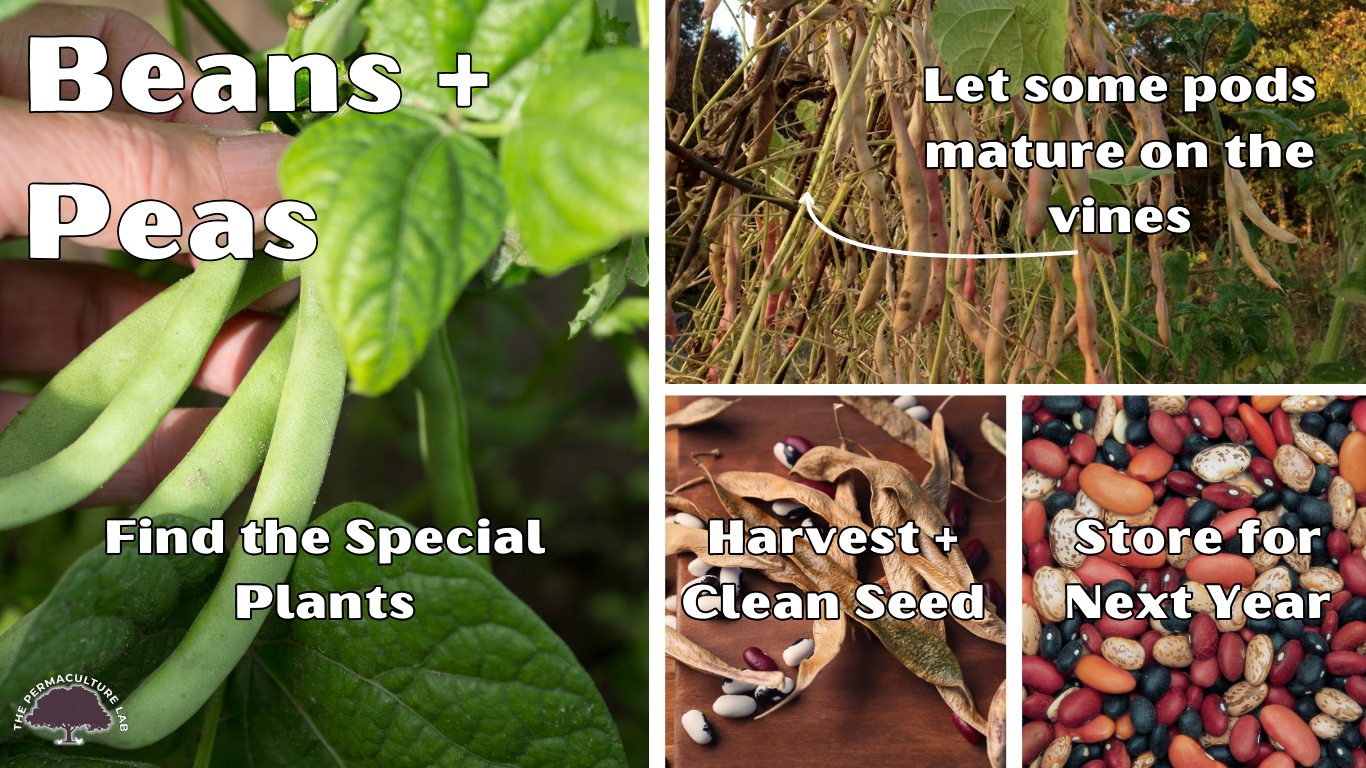How to Save Seeds for a More Resilient Garden
Apr 19, 2025
Get started with this timeless practice for resilient, regenerative gardens
As spring unfolds and gardens begin to bloom, now is the perfect time to explore one of the most powerful and accessible practices in permaculture: seed saving.
Seed saving is more than just a gardening technique—it’s an act of sovereignty, ecology, and legacy. Each seed tells a story. When we save and replant them, we participate in a 10,000 year old tradition that connects us to generations of growers who came before and to a future we are helping to shape.
🌾 Why Save Seeds?
Saving your own seeds offers many benefits:
-
Adaptation to place: Plants grown, selected, and saved in your garden year after year become more attuned to your local microclimate, pests, and soil.
-
Preservation of diversity: Heirloom and open-pollinated varieties are increasingly rare. By saving seeds, you become a steward of living biodiversity.
-
Resilience: Seed saving fosters independence from seed companies and supply chains. You build a self-sufficient system right in your backyard.
-
Community connection: Seeds are for sharing. Seed libraries, swaps, and gift exchanges are powerful ways to build local networks and relationships.
🌼 Start Simple: Advice from Bill McDorman
Bill McDorman—seed activist, educator, and co-founder of the Rocky Mountain Seed Alliance—has spent decades inspiring people to reclaim their seed heritage. His message? Start small, and start with what works.
“The best seeds to save are the ones that make you feel successful. Even if you just save one variety, you’re part of something much bigger.”
—Bill McDorman
Here are a few beginner-friendly crops he recommends:
-
Tomatoes – Self-pollinating, easy to ferment and dry.

-
Lettuce – Let a few plants bolt and flower; harvest once seeds form.

-
Beans – Let them dry on the vine, shell them, and store.
-
Peas – Like beans, just allow to fully dry before collecting.

These plants don’t readily cross-pollinate, so their seeds will generally grow true to type year after year.
🌿 The Basics of Seed Saving
Whether you’re growing a backyard garden or a larger homestead, here’s how to begin:
-
Choose open-pollinated varieties. Avoid hybrids if you want seeds that grow true to type. Although keeping seeds from hybrids can be fun too as you will find so many unique offspring.
-
Let seeds mature fully. This often means leaving them longer in the garden than you would for eating.
-
Clean and dry. Use screens, sieves, or even your hands to separate seeds from chaff. Let them dry thoroughly—this prevents mold.
-
Label and store. Use paper envelopes or glass jars. Include the plant name, variety, and harvest date. Store in a cool, dark, dry place.
💡 Tip: Keep a seed-saving notebook or log to track successes, observations, and any interesting variations you notice.
📚 Learn More
For more in-depth, beginner-friendly guidance, Bill McDorman’s book Basic Seed Saving is a great companion. It offers clear, practical steps for saving seeds from 18 vegetables and 29 wildflowers. It’s a short, essential manual for any gardener stepping into this world.
You can also explore Seed School, the educational project Bill co-founded, which offers online and in-person classes, as well as community-based seed initiatives.
Want to learn more? Check out our podcast interview with Bill McDorman here.
🤝 Seed Saving as Community Care
Seed saving isn’t just about your own garden. It’s about our collective future. When you save seeds and share them whether at seed swaps, with neighbors, or through a local seed library, you help create a decentralized, diverse, and regenerative food system.
You might even find that certain seeds carry stories with them: a grandparent’s squash variety, a tomato from a friend’s travels, a wildflower native to your watershed. These stories can take root just like the seeds themselves.
✨ This Week’s Action
Choose one plant in your garden to observe through its full life cycle from seed to flower to seed again. Let it go to seed intentionally, and save those seeds for next season. Bonus points if you share them with a friend.
